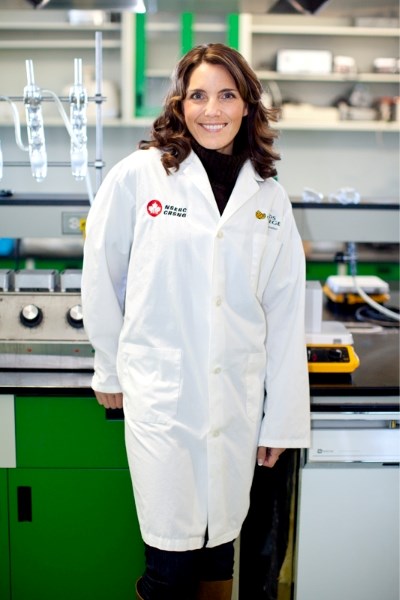Olds College dean of agriculture Tanya McDonald received some good news on Nov. 25.
She learned that the Natural Sciences and Engineering Research Council of Canada (NSERC) would fund four projects that the Olds College Centre for Innovation (OCCI) had been working on for the past few months.
“We applied for and received these four grants, each worth $25,000, for a total of $100,000,” said McDonald.
“This is a new program that NSERC has launched for colleges and industry to partner together. It has been a huge opportunity, a huge win for both industry as well as Olds College.”
McDonald was OCCI's bio-energy research scientist until last October. She completed the four applications during the past spring and summer. The four projects were approved and are currently going forward.
The first project is with a Calgary company called Livestock Water Recycling.
“They have developed a unique and innovative technology for treating wastewater from the livestock industry,” said McDonald
“We are working with them to test their technology, to collect samples and verify the effectiveness of their technology in providing clean water.”
The second project has the OCCI research scientists working with CanHarvest BioEnergy to optimize the company's algae products.
“They are very interested in the opportunity for algae bio-fuel, growing algae to clean up wastewater and to sequester carbon dioxide, which is a problem for climate change,” said McDonald.
“While the algae are doing that, they produce oil, which can be harvested of the algae cells to be converted into bio-fuel or other industrial oil applications.”
The third project is with a Manitoba company called Overton Environmental Enterprises Inc. The company is developing a compost tea product.
“They have a compost tea brewer. Basically, you would put high quality compost in and extract the nutrients and the beneficial micro-organisms into a very highly concentrated tea product,” said McDonald.
“This tea is used as a amendment for plants to enhance their growth.”
The college's scientists are testing the compost tea in hydroponic vegetable production.
“We did a research project for them to see how much fertilizer reduction you could achieve by using the compost tea,” said McDonald.
The fourth project involves using alfalfa pellets to reclaim hydrocarbon-contaminated soil.
“Our partner Western Alfalfa Milling Company has developed a product called Alfalfa Green, which is pelletized alfalfa, a very high-protein, organic product,” said McDonald.
“We were looking at how that could speed up the process of remediation through the addition of this organic product.”
Ten OCCI staff members are working on the four projects and they are helped by a student research pool of eight.
“We try to involve Olds College students as much as possible in our research work so that they can learn about new and innovative technologies in the agricultural industry,” said McDonald.
All the projects will be completed in January, after which the OCCI will be moving on to secure longer-term research agreements with the four companies.
“The work that we do here, working with small companies and entrepreneurs to identify new markets for agricultural products, is a key priority for the OCCI,” said McDonald.



